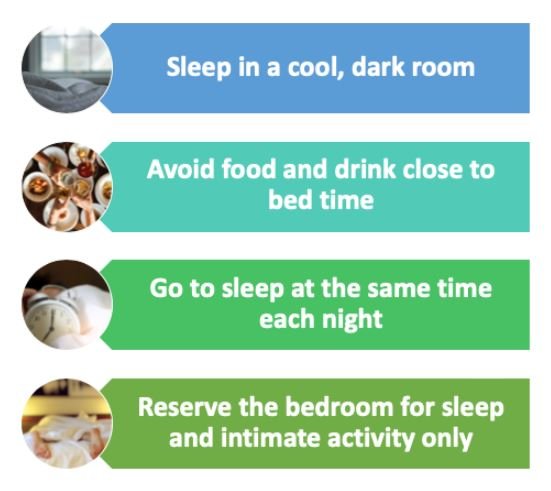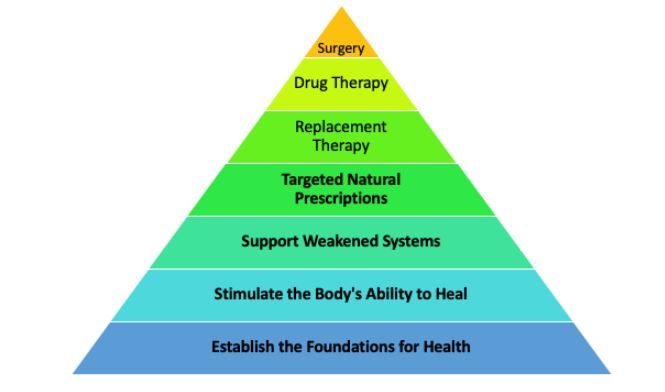Chronic Depressive disorder: Rapid Improvement Using Naturopathic Therapies

Major depressive disorder is a substantial public health concern associated with increased functional disability and mortality.1 Patients with depression have at least a 27-times-greater likelihood of death by suicide compared to the general population.2 The present estimate of lifetime prevalence of unipolar depression is 18%, and also the 12-month prevalence is 6%.1 Additionally, MDD is usually chronic and people are highly likely to experience relapse.1
There are several working theories concerning the underlying reasons for depression. MDD likely represents some heterogeneous disorders that result in depressed mood and associated symptoms.1 One theory is that certain individuals are unable to synthesize or utilize mood-related neurotransmitters appropriately; this is perhaps due to genetically-linked or epigenetic enzyme deficiencies, environmental exposures to neurologically active toxicants, or physiological or psychological trauma resulting in alterations in neural networking.3,4 Another theory posits an association between depressed mood and the hypothalamic-pituitary-adrenal axis; research has found an association between overproduction of corticotropin-releasing hormone and depression, possibly resulting in suppression of neurogenesis.5,6
Another etiological theory which has emerged within recent decades is that depression is related to inflammation. Evidence from a meta-analysis of studies from 1967 to 2008 suggests that MDD is associated with higher mean amounts of systemic inflammatory markers, such as high-sensitivity C-reactive protein and the proinflammatory cytokines interleukin -6 and IL-1.8 This theory can also be supported by several review articles that suggest many possible underlying mechanisms of action with this relationship, including disruption of neurotransmitter synthesis pathways in addition to systemic inflammation including oxidative stress.8-12 Inflammatory states happen to be associated with treatment-resistant depression, suggesting that addressing underlying inflammation could be the key to treatment success. This concept is based on results of randomized trials that demonstrated the ability of pharmaceutical anti-inflammatory agents, such as infliximab, to improve symptoms and disease course in patients with depression.13,14
The first-line treatment for severe depression may be the selective serotonin reuptake inhibitor class of medications. The proposed mechanism of action with this drug class is an induced rise in serotonergic activity.15 Common negative effects of SSRIs include sexual dysfunction , drowsiness , putting on weight , insomnia , anxiety , dizziness , and headaches .16 Importantly, SSRIs are effective in only 50% of primary care patients, and the Number Needed to Treat for depression symptom improvement is 6.16 Given that this standard-of-care treatment can be limited in its efficacy and tolerance, patients will frequently give naturopathic physicians requesting alternatives to SSRIs. In this article, we present a case report of chronic, severe MDD by which naturopathic therapies were effectively used to improve mood.
Presenting Concerns & Clinical Findings
A 29-year-old female given to the NUNM clinic in July 2023, seeking alternative approaches for depression and anxiety. The individual reported she'd been experiencing depression throughout her memory and that her depressed mood may be related to childhood sexual abuse from a relative, though this incident wasn't discussed at length during the visit. Her mood dysregulation had historically been managed with pharmaceuticals and counseling; however, she reported having had an adverse reaction to SSRIs prescribed to her in early 2023. She'd never been hospitalized for MDD or for every other mental illness.
At this first visit, she reported severe depression . She was experiencing sleep changes , feelings of guilt and worthlessness, low energy, cognitive difficulties, psychomotor retardation, and suicidal ideation. She denied an agenda or intent related to this suicidal ideation. Her self-reported cognitive difficulties manifested as “brain fog” and memory loss , which she attributed to her lifelong depressed mood. The patient was not currently experiencing changes in appetite associated with her depression. She had also been experiencing anxiety in the past year, that was new on her. There wasn't any identifiable incident or component that might have contributed to her worsened mood regulation in the past year.
She reported dissatisfaction with her social life, occupation, and motivation to complete daily tasks. She also experienced sleep dysregulation because of being a night-shift worker. She ate a standard American diet and lived a sedentary lifestyle, though she'd enjoyed participating in physical activity previously. She denied drug use, but occasionally drank alcohol. She reported a household good reputation for depression, including her sister and several members on her behalf mother's side from the family. Besides 1 month of counseling and also the aforementioned previous trial of SSRIs, she had not been treated for her depressed mood or anxiety.
Physical study of heart, lung, abdomen, HEENT , and peripheral pulses was unremarkable. She did, however, present with the blunt affect typical of severe depression.
Diagnostic Assessment
According towards the Diagnostic & Statistical Manual of Mental Disorders V , major depressive disorder is diagnosable based on clinical picture alone if the episode isn't due to the direct physiological effects of an ingredient or other medical condition.17 The patient reported that recent blood tests ordered by her doctor were normal. Current blood work considerations included a complete blood count and thyroid-stimulating hormone; however, we suspected the probability of abnormalities during these areas being the reason for her symptoms was low.18 Unfortunately, i was unable to obtain the lab leads to confirm. She also denied current use of any medications or substances that may explain her symptoms.
At the first appointment, she has a PHQ-9 score of 24 and a GAD-7 score of 16 , indicating both severe depression and anxiety, respectively. We inferred from her previous treatment with SSRIs and her personal report of a history of depression that MDD was the working diagnosis. Indeed, based on the existence of 7 out of 8 major symptom criteria for MDD, and also the chronicity of the complaint, the individual was identified as having severe, recurrent MDD without psychotic features.
Therapeutic Interventions
Given the severity of a person's depression, it was important to examine with the patient the standard-of-care option of SSRIs. However, given her previous adverse reaction and her preference for natural treatment, we recommended a well-known mood regulation supplement, 2 grams of omega-3 fatty acids each day, a workout regimen, and sleep hygiene practices.
The recommended supplement is really a mixture of nutrients and botanicals made to improve mood by giving neurotransmitter and adrenal support. Ingredients within this supplement include vitamins C, B5, B6, B9, B12, and iodine; amino acids and neurotransmitters L-tyrosine, 5-hydroxytryptophan, and gamma-aminobutyric acid ; and the herbs Eleutherococcus senticosus and Rhodiola rosea. Several ingredients within this formula are evidence-based. Vitamin C supports adrenal gland function and reduces oxidative stress considered to be contained in depression.12 Additionally, Vitamin b are essential for energy and executive function essential in depression, including neurotransmitter synthesis . A recent review summarized considerable evidence that the use of B vitamins improves depressive symptoms both in human and animal studies.19 Inclusion from the amino acids and neurotransmitters is based on evidence suggesting that tryptophan and phenylalanine are consumed through the body in greater quantities during inflammatory states. As such, it has been posited that depletion of these proteins contributes to the phenotype of inflammation-based depression.20 A recent trial of otherwise-healthy teenagers discovered that eating an eating plan high in tryptophan improved mood by reduction of depressive symptoms and anxiety1; supplementation with tryptophan would logically have a similar effect, even though there are no current randomized controlled trials confirming this assumption. Furthermore, an evaluation published in 1984 discussed mechanistic models supporting the use of tyrosine for depression; however, there have been no further numerous studies or reviews about this topic.22 Finally, the herbs included in this formula are recognized to support concentration, mood, and resilience to worry, according to both animal studies and numerous studies.23,24 The prescribed dose of the product was 2 capsules twice each day, as recommended through the manufacturer.
Fish oil at 2 grams per day was recommended for its additional anti-inflammatory action. Multiple recent systematic reviews and meta-analyses compiled clinical evidence making strong positive strategies for the use of EPA-rich omega-3-fatty acids for depressive symptoms.25 We recommended that the patient participate in moderate-to-high-intensity exercise for 3-5 days each week, that is proven to improve depression symptoms.26,27 Finally, we made several standard sleep hygiene recommendations based upon the patient's reported exhaustion and night-shift work, which in and of itself is assigned to increased risk of depression.28 A current randomized medical trial of adolescents demonstrated improvement of depression symptoms with sleep hygiene advice much like those given to our patient29; however, there are no clinical trials of adults with MDD that specifically investigate the relationship between sleep hygiene advice and depressive symptoms.
Figure 1. Sleep Hygiene Recommendations

Two-Month Follow-up
The patient returned to clinic for a follow-up appointment 2 months later . She reported significant symptom relief, stating, “I'm happy.” She reported being compliant with the strategies for the whole duration, which she believed contributed to her success. She was without difficulty with following our recommendations aside from exercising, which she'd just restarted within the previous 14 days.
The patient presented noticeably happier and clearer in her own affect; she made more eye contact, showed no signs of psychomotor retardation, and smiled during the visit. We repeated the PHQ-9 and GAD-7 only at that visit, which delivered scores of 2 and three, respectively. This fact caused the individual – who had felt depressed for a lot of her lifetime and had completed these forms often over the years – to exclaim, “This is the lowest score I've ever had!” She was thrilled with her progress and planned to follow up in About six weeks to check on in.
Current Day
Unfortunately, the individual hasn't returned towards the NUNM Clinic since her second follow-up. Hence, we're unable to report whether she's had the opportunity to sustain a complete remission, which would require symptom improvement for 4-6 months.30
The student author want to know , was able to get to the patient by phone in November 2023. She reported recent stressful life events, including going through a divorce that has caused her mental health to be “up and down” at the time of the phone call. The individual denied suicidal ideation and reported increased resilience compared to her previous depressive episodes. However, the student was not able to determine whether the individual was still being adhering to our previous treatment recommendations.
Discussion
Though the individual was lost to follow-up, this case is an excellent example of successful management of patients with severe MDD who do not tolerate SSRIs or who decline SSRIs for any other reason. The combination of targeted supplementation with lifestyle recommendations supported her health through multiple mechanisms.
However, this case isn't without limitations. The authors must acknowledge the brief timeline and the fact that the patient was lost to follow-up. In the end do believe that she's maintained some improvement, based on her telephone call, we are not able to confirm that she's followed her treatment protocol. We also acknowledge some reliance upon a person's self-report of being up-to-date on screening labs to reach her diagnosis. Despite these limitations, we believe that the patient's rapid response merited this example report, and we're happy with the progress made.
Recalling the Therapeutic Order, we reflect on the concept laser hair removal plan concentrates on the underside 1 / 2 of our pyramid, emphasizing gentle and effective therapies in contrast to pharmaceuticals that may have detrimental negative effects in the long run .31,32 Specifically, we were in a position to establish her foundations of health with the exercise and sleep hygiene practices in addition to stimulate the body's ability to heal and support weakened systems using the supplements. We believe laser hair removal regimen might be an effective method for naturopathic physicians to use, and more research concerning the efficacy of the protocol in the form of a comparative effectiveness study is warranted.
Figure 2. Naturopathic Therapeutic Order


